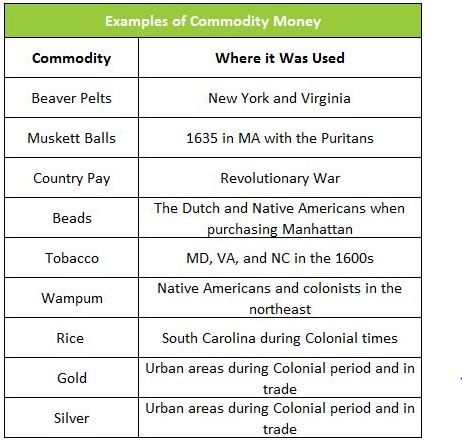Commodity Money
View FREE Lessons!
Definition of Commodity Money:
Commodity money is a commodity that has intrinsic value and is used as a median of exchange.
Detailed Explanation:
Economies that rely on bartering usually develop a medium of exchange, typically a commodity with enough demand that traders know they can easily exchange it for something they need, even if they don’t have a use for the commodity themselves. This commodity becomes commodity money, meaning it has an intrinsic value derived from its material rather than a guarantee or government backing. Economies have used valuable commodities like gold, silver, copper, and tobacco as commodity money. (The saying, “He is worth his salt,” originated when Roman soldiers were paid in salt.) It should be durable so that its value won’t deteriorate over time. It should also be divisible so traders can use it for transactions of different amounts. Finally, its value must be widely accepted by members of a community.

Dig Deeper With These Free Lessons:
What is Money
Fractional Reserve Banking and the Creation of Money
Monetary Policy – The Power of an Interest Rate
